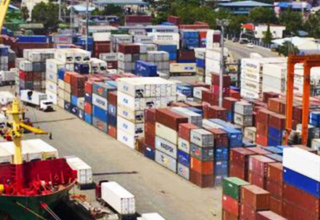Frame fair rules for logistic development; end oligopolistic business of PSUs: Study
Updated: Sep 08, 2015 02:34:19pm

“A successful PPP model in dry port operations would require pricing policies based on long run average cost pricing aimed at full cost recovery by public and private dry port operators alike. This would eventually help establish a level playing field for all the players, irrespective of the nature of ownership,” it said.
To recover initial capital costs such as land acquisition, levelling, paving and access roads, a private dry port operator needs to charge a price equal to his long-run average cost.
This places new entrant at a competitive disadvantage vis à visa public operator whose investment costs need not be recovered.
The chamber also said that the oligopolistic behaviour of state-owned agencies like CONCOR must end.
Container train operations are dominated by a few operators with state owned CONCOR accounting for a dominant market share. Dominant player can reap supernormal profits in a situation of strong demand and can even indulge in predatory pricing to protect its market share, it said.
ASSOCHAM pointed out that CONCOR' s pricing strategy to some extent reflects traits of oligopolistic behaviour.
“Indian ICDs/CFs segment in the logistics chain in particular is marked by a strong public sector presence substantial excess capacity, skewed spatial distribution of ICDs/CFs, smaller size in terms of handling capacity vis-à-vis operators abroad which handle million plus TEUs annually,” it said.
Public sector dry port owners enjoy a huge advantage of having land available for use at token cost or leased out to for long periods at very low, subsidized rates.
The government thus becomes a price setter for dry port services. In contrast, the private sector does not get similar preferential treatment and has to acquire land at market values. A dry port is essentially a land-intensive venture but its related infrastructure is in the nature of public utility. Competition between the public and the private sector has not been taking place on a level playing field, added the chamber. (KNN Bureau)











